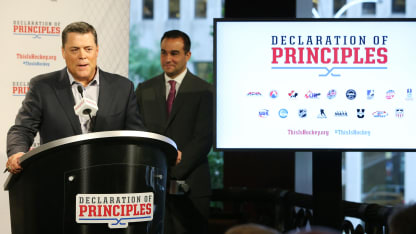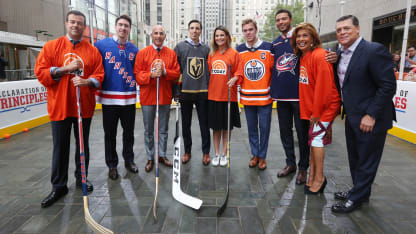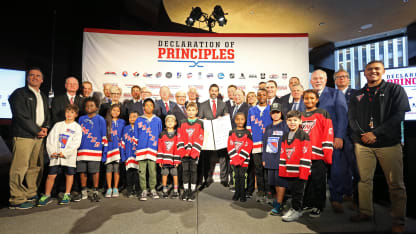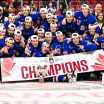Each of the 17 organizations involved has plans for growing its fan base, but the Declaration of Principles for the first time unifies their effort and allows the organizations to share best practices.
"A lot of us have worked together in a lot of different areas of the game for years and years," USA Hockey executive director Pat Kelleher said. "To collect everyone, with the NHL's leadership, pull everyone together, really makes a difference. We have messaging that goes out to our million-plus members in USA Hockey. When that message is amplified by the NHL, by the [Players' Association], by everyone involved with the Declaration of Principles, it only strengthens what all of us do at the grass-roots level."
Whether Bannerman develops elite skills or not, the goal is to keep him, and boys and girls around the world like him, involved in hockey.
"With what I see in Philip he can have a future in the NHL," Kofi Bannerman said. "Even if he doesn't play hockey to a high level, his speaking skills are good, he's an intelligent kid. He does well in school. Anything in ice hockey, I want him to be around it. I think it would be good for him."
Kelleher echoed those sentiments.
"Everyone wants to be as good as they can be as a player, but also recognize there's a place for every player, every boy and girl, in the game, regardless of how good they are as a player," he said. "We want them involved in our sport because we think it's more valuable in their life than anything else they'll do as an activity."




















